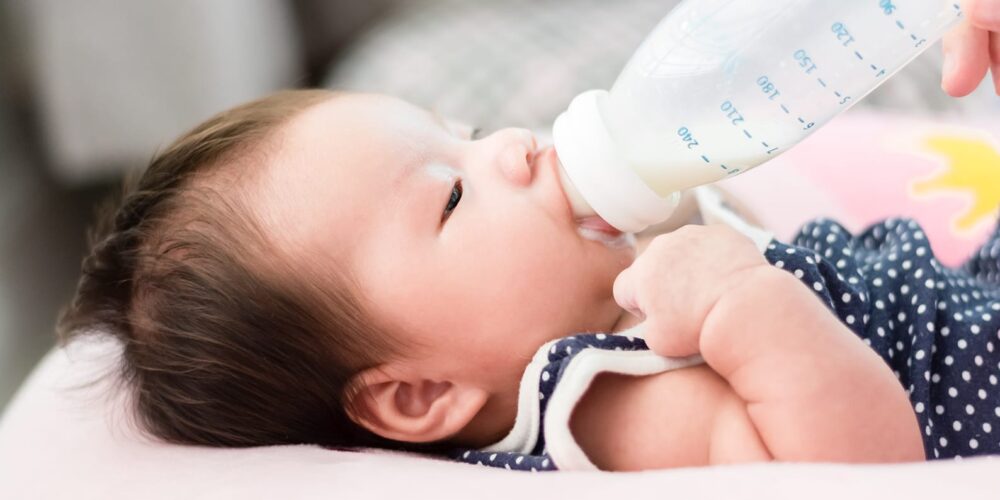Breastfed Vietnamese babies have fewer health issues, study finds

Vietnamese infants who are fed with infant formula or prelacteal foods such as water and honey soon after birth are more likely to experience higher rates of hospitalisation and childhood illnesses during their first year of life compared to infants who are breastfed, new research involving Curtin University has found.
The research, published in Archives of Disease in Childhood, recruited 2,030 pregnant women across three cities in Vietnam to determine whether there was a direct relationship between prelacteal feeding, early formula feeding and adverse health outcomes, especially hospitalisation and lower respiratory tract infections, during the children’s first year of life.
Lead Australian author John Curtin Distinguished Emeritus Professor Colin Binns, from the School of Public Health at Curtin University, said it is recommended that infants are breastfed within one hour of birth, as breastmilk is known to have immunologic protection against infection.
“Previous research has found that there is a high prevalence of prelacteal feeding, such as water, honey and fruit juice, and formula feeding in Vietnam, but the impact this may have on an infant’s health has not been investigated thoroughly,” Professor Binns said.
“Our study recruited a cohort of pregnant women, who were at 24 to 28 weeks of gestation, across three cities and six hospitals in Vietnam between August 2015 and December 2017. The participants were then followed up at their discharge from hospital, as well as at one, three, six and 12 months after giving birth.
“We found that 56.5 per cent of infants were fed prelacteal foods and 79.5 per cent were fed infant formula soon after birth. About one quarter of those infants experienced diarrhoea or were admitted to hospital, and almost half contracted lower respiratory tract infections within 12 months of life, compared to infants who were breastfed.”
Professor Binns explained that the benefits of breastfeeding should be promoted around the world, adding it could save thousands of infant lives each year.
“Prelacteal foods and formula milk during the first few days of life interfere with the establishment of breastfeeding and can increase their risk of childhood illness,” Professor Binns said.
“It is important to better educate women during their pregnancy in order to avoid the negative consequences of giving formula milk or prelacteal foods to their new-born babies. Extra support is needed for mothers who have difficulty in breastfeeding, as it is important that they don’t become reliant on formulas as a substitute for breastmilk.”
The research was co-authored by researchers from the University of Medicine and Pharmacy at Ho Chi Minh City, the National Institute of Hygiene and Epidemiology, and the Sexual and Reproductive Health Unit, United National Population Fund in Vietnam.
The research paper, titled, ‘Prelacteal and early formula feeding increase risk of infant hospitalisations: A prospective cohort study,’ can be found online here.



